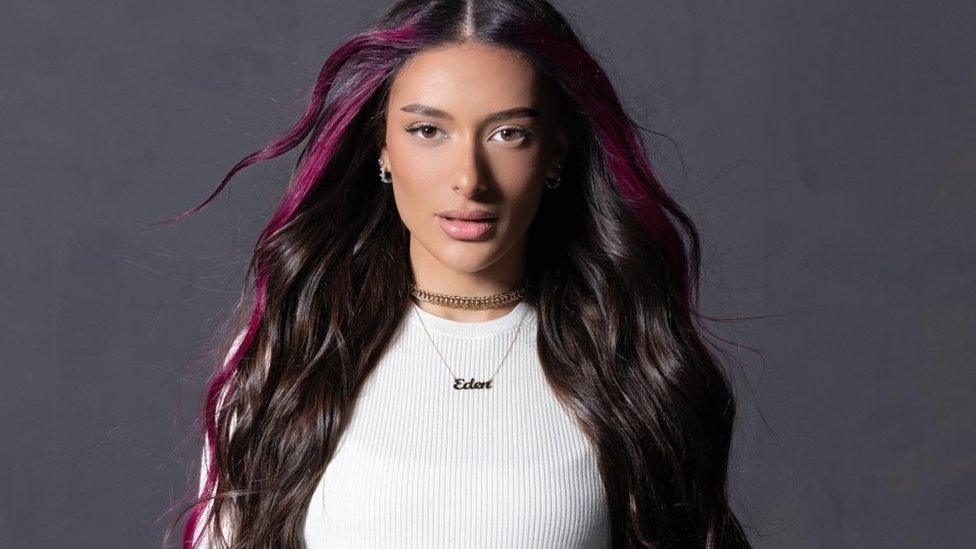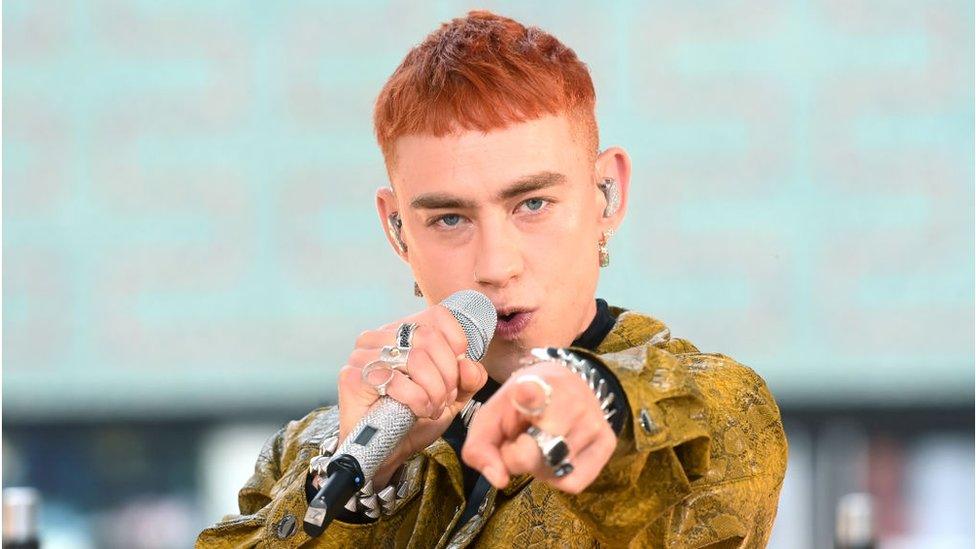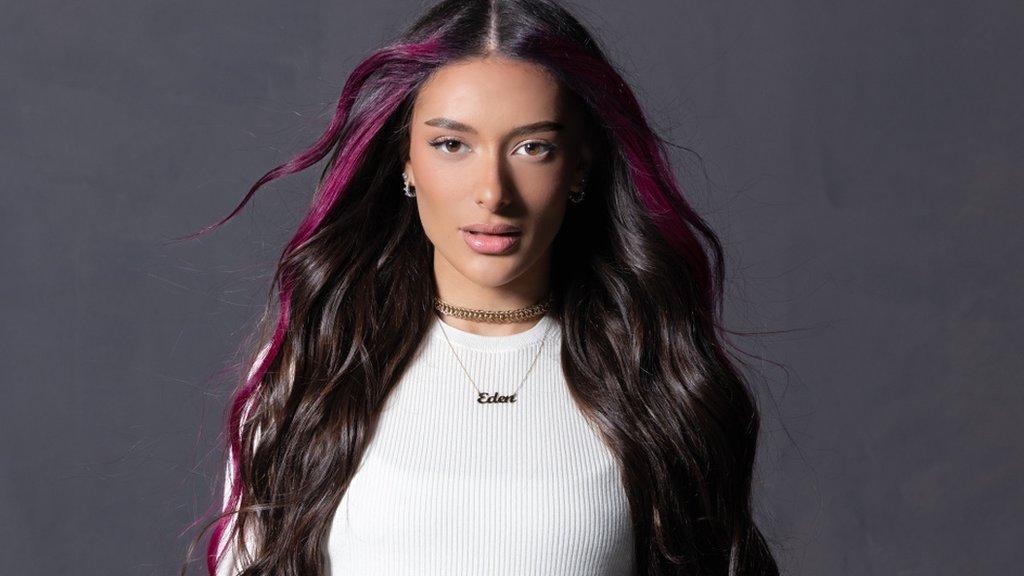Eurovision organisers condemn online abuse of contestants
- Published

Eden Golan will represent Israel at the song contest in Sweden this May
Organisers of the Eurovision Song Contest have said that abuse and harassment of artists over Israel's participation in the competition is "unacceptable and totally unfair".
This year's competition will take place in Sweden in May, amid calls for Israel to be banned over the war in Gaza.
Several contestants, including the UK's Olly Alexander, have rejected calls for them to boycott the show.
And it has been reported that Israel's Eden Golan has faced death threats.
The 20-year-old has received several messages directly to her Instagram account, reported celebrity website Walla Celebs., external
The Jerusalem Post said, external the singer would arrive in Malmo, Sweden, with "three times" the usual number of security guards.
In a statement, the European Broadcasting Union, which organises Eurovision, acknowledged "the depth of feeling and the strong opinions that this year's Eurovision song contest - set against the backdrop of a terrible war in the Middle East - has provoked".
"While we strongly support freedom of speech and the right to express opinions in a democratic society, we firmly oppose any form of online abuse, hate speech, or harassment directed at our artists or any individuals associated with the contest," the statement continued., external
Jean Philip De Tender, deputy director general of the European Broadcasting Union, added that the decision to allow Israel's participation was "the sole responsibility of the EBU's governing bodies and not that of the individual artists".
"We urge everyone to engage in respectful and constructive dialogue and support the artists who are working tirelessly - on what is a music and entertainment show - to share their music with the world," he added.

Olly Alexander will represent the UK with the song Dizzy
Israel's public broadcaster, Kan, is a member of the EBU, giving it the right to participate in the contest.
Organisers have resisted calls for it to be suspended, saying the show "is not a contest between governments".
However, the EBU did force Israel to change the lyrics of Golan's song October Rain, after deciding the original was too political.
The first version was widely considered to be a reference the 7 October Hamas attacks on Israel, with several lyrics paying tribute to the victims.
Kan initially refused to change the song, saying it would prefer to withdraw from the contest - but Israel's President, Isaac Herzog, later called for "necessary adjustments" to ensure the country could participate.
Now renamed Hurricane, the dramatic piano ballad is ninth favourite with bookmakers to win the competition.
However, Israel's participation is unlikely to go unremarked when the contest takes place next month.
Swedish police are preparing for multiple protests in Malmo in the week of the competition, and nine competitors have called for "an immediate and lasting ceasefire" in Gaza.
The statement, signed by Olly Alexander, Ireland's Bambi Thug and Danish entrant Saba, among others, came in response to calls for musicians to boycott the show.
"We firmly believe in the unifying power of music, enabling people to transcend differences and foster meaningful conversations and connections," the artists wrote.
One person who has pulled out of the competition, however, is Iceland's long-running commentator, Gísli Marteinn.
The TV personality and former politician, who has helmed 15 editions of the song contest, announced his decision on Instagram, citing the organisers' "lack of reaction" to the situation in Gaza.
"For me, Eurovision is about atmosphere and joy, and I feel neither in this year's competition," he wrote.
Sweden won last year's Eurovision Song Contest in Liverpool, with pop star Loreen taking home her second trophy for the stormy electro-ballad Tattoo.
- Published10 May 2024

- Published11 March 2024

- Published29 March 2024
